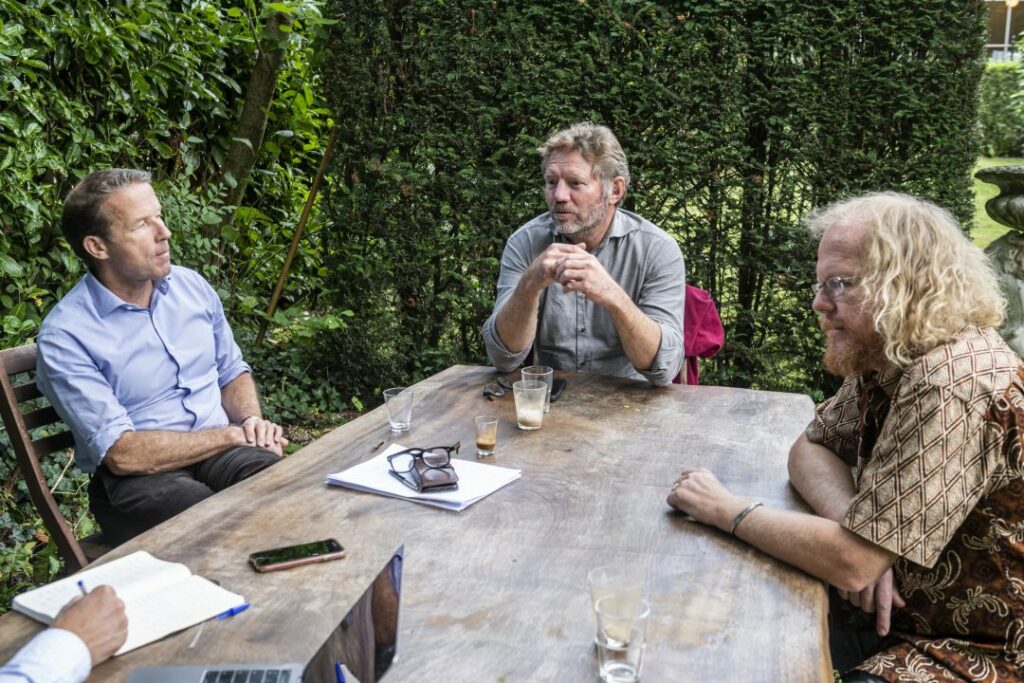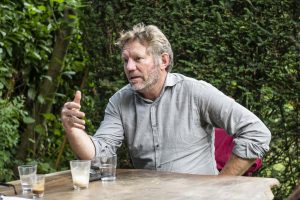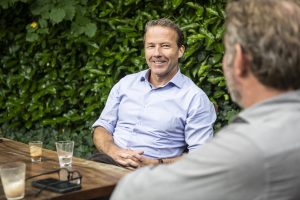Cardano Development proves that ESG should be an inherent aspect of your entrepreneurial purpose and involves far more than ticking boxes
ESG targets, green obligations, contributing to the UN’s climate goals. The foundation for Cardano Development was laid way back in 2005, long before “going green” became fashionable. Since then, this impact investor has grown into the largest collaboration platform for development banks in the world.
Cardano Development strives to realise stable incomes for households and businesses in developing countries. The organisation does this by developing innovative solutions in the field of financial risk management.
These two sentences capture the essence of Cardano Development’s purpose. Theo Kocken, chairman: “This purpose is the reason we exist; it inspires you and gets you moving. It is the compass that helps us stay our course without any distractions along the way and realise true impact. In all this time, we have never had a need for any imposed targets.”
ESG is more than ticking boxes; it should be an inherent aspect of your purpose – Theo Kocken
Kocken: “Honestly, I am surprised by all these buzzwords and new products like green bonds that make you wonder just how ‘green’ they really are. Apparently, they are needed to bring about a change and enforce a certain investment policy. Don’t get me wrong; they are certainly helpful in that regard. Yet to me, something like ESG is about more than ticking boxes and then proudly proclaiming to the world just how sustainable you are. I believe it should be an inherent aspect of your clearly formulated purpose.”
The first idea literally fit on the back of a beer mat. Fifteen years later, we realise major impact in developing countries.
Let’s go back to 2005. The first idea – which would ultimately lead to the foundation of Cardano Development – fit on the back of a beer mat. Literally, because the first time its founders talked about it and understood that this simple idea would allow them to realise true impact in developing countries, they were sitting in a pub.
Frank Gosselink: “At the time, Joost and I were working for the Dutch development bank FMO. Just like every other development bank, we paid out all loans to businesses in frontier countries (developing countries with a promising economy) in dollars. However, the businesses that had to repay loans used their local, weaker currency. If times were tough and that currency happened to devalue even more, the repayments of the loan would become higher and higher and businesses would end up in a downward spiral – despite the fact that they are of great importance to the economy. It is an example of wrong way risk. We came up with the idea of having banks insure this risk. The only way that would work was if virtually all global development banks invested in a fund together. We would have to rely on the economy of scale. The higher the debt and the more regions there are to spread the risk between, the better the scheme works.”
Cardano Development has grown into the largest collaboration platform for development banks in the world.
Two years after that discussion in the pub, the idea became reality with the establishment of the TCX fund (The Currency Exchange Fund). This was a milestone in more ways than one, because it did indeed bring development banks together and got them to collaborate. Herman Wijffels, who worked as administrator of the World Bank at the time, thought it was a truly impressive achievement: “We should have thought of it ourselves a long time ago.” The fund became a success. Now, in 2020, it manages products for the management of the currency risk in more than fifty currencies of frontier countries. The portfolio has a value of USD 5 billion and received an A rating from S&P.
We look across borders and map out the entire chain to determine the point at which we can realise the biggest impact. – Frank Gosselink
The foundation of the TCX fund marked the inception of what is known today as Cardano Development. Over the course of more than thirteen years, the organisation has grown into the largest collaboration platform for development banks in the world with regard to transactions. Other impact investors such as the Shell Foundation and the Rockefeller Foundation also make regular investments. Besides TCX, Cardano Development currently also manages six other funds that each offer innovative solutions for the risk management of financial products. In addition to financial returns, the investments in the funds also generate a measurable positive social or ecological impact. According to this official definition, that makes Cardano Development an illustrative example of an impact investor.
People often think that impact goals conflict with profit targets. In reality, the opposite is true. – Joost Zuidberg
According to Joost Zuidberg, an important part of the success has to do with the businesslike and entrepreneurial approach. “People often think that impact goals conflict with profit targets. In reality, the opposite is true. We can only realise our purpose with a well-thought-out business case. We come up with a solution, raise capital for it and then manage that. We meet high standards and have a serious vision on risk management and an excellent track record. The institutional cover provided by Cardano Group is of immeasurable value to what we do. Because of this combination, the conservative and risk-averse institutes that we target dare to do business with us. That allows us to generate true impact and realise our purpose: helping people and businesses in developing countries earn a stable income and protecting them against financial risks.”





